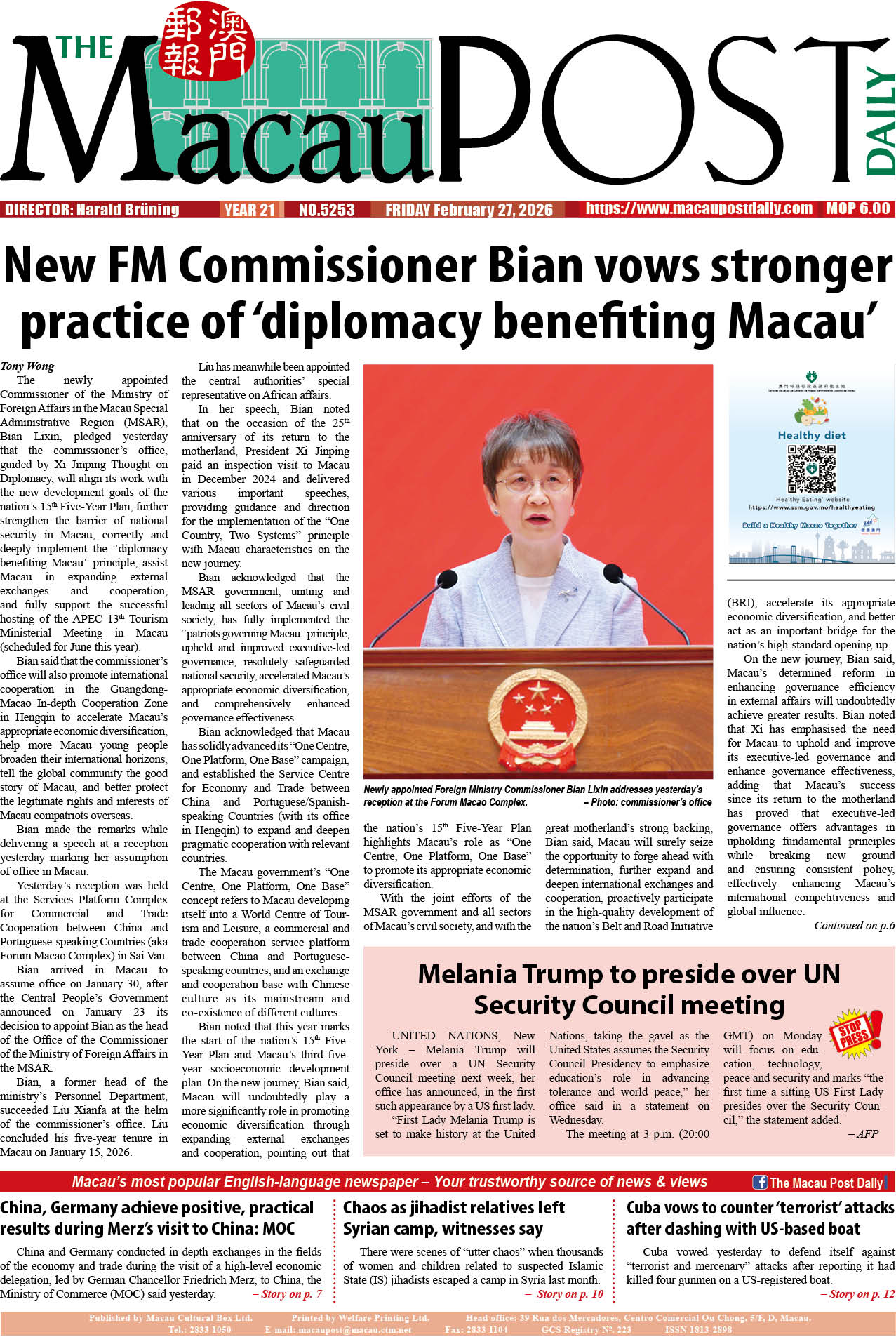Editorial
Initially I planned to write this editorial on Wednesday, i.e. just a few hours after the rarely hoisted storm warning signal No. 10 had been lowered by our meteorologists, but I decided to delay it by one day so that I could ask more residents about their views on the government’s civil protection measures before, during and after Typhoon Higos.
I had expected to hear mostly favourable opinions but to my surprise I heard no negative views at all. The Civil Protection Operations Centre (COPC) headed by Unitary Police Service (SPU) Commissioner-General Leong Man Cheong received most of the accolades. There was also much praise for our weather station’s timely flow of information about the stormy menace. Some of the people I talked to even urged me to write an editorial about their heartfelt commendations.
Well, that’s what I have done.
The centre certainly deserves a hearty pat on the back.
I think what has changed most compared with the not so distant past is that the government has become much more proactive in tackling civil protection issues. Just a few years government officials tended to pursue a rather passive “wait-and-see” approach when faced with a natural disaster. No doubt, lethal Typhoon Hato in August 2017 left people in Macau shocked to the bone and the government came, quite rightly, under immense criticism for its widely perceived failings in preparing for, and dealing with, the devastating storm’s aftermath. Only thanks to the efficient deployment of the local garrison of the People’s Liberation Army (PLA) were the authorities able to remove the huge amount of debris before it could become a public health hazard.
But, in all fairness, the government under then chief executive Fernando Chui Sai On learnt its lesson rather quickly and when Typhoon Mangkhut descended on Macau in September 2018 the authorities were much better prepared for the onslaught than just a year before. This shows, I think, that learning something the hard way is ultimately one of the best ways to learn. Or, as the age-old adage goes, every cloud has a silver lining.
This time, Typhoon Higos was much less destructive than Hato or Mangkhut. While the storm spared Macau major damage and serious injuries it still caused considerable havoc to our city – and residents told me that they found Higos particularly noisy. Well, it’s certainly preferable to face an ear-splitting than a calamitous storm. Of course, even “minor” damage such as toppled trees, damaged cars, battered façades and torn advertising hoardings is still bad enough as it can be emotionally and/or financially draining for those directly affected by it.
Possible flooding in low-lying areas requiring the evacuation of potentially thousands of residents is another challenge faced by our civil protection team during a typhoon.
In other words, even a not particularly “nasty” typhoon as Higos still requires a lot of preparation by the Civil Protection Operation Centre to be ready for the worst. The COPC team proved this week that it was well prepared. Last but not least, our weather forecasters also did a pretty good job, considering that Higos chose to follow a rather erratic track that took it much closer to Macau than initially predicted.
Well, as William Shakespeare wrote some four centuries ago in Henry V: “All things are ready, if our mind be so.” Timeless advice indeed!
– Harald Brüning







